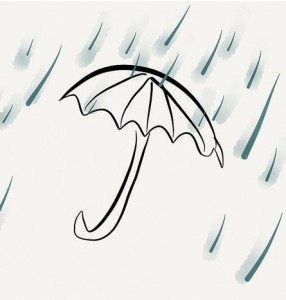 Are you planning to buy a condominium or co-op?
Are you planning to buy a condominium or co-op?
Insurance needs for condos and co-ops are different than for other types of property. ProInsurance, a Bay Area brokerage and Pacific Union International’s insurance partner, offers the following advice for condo and co-op owners:
TWO SEPARATE POLICIES
If you have a mortgage, your bank will require insurance to protect its investment in your home. However, you may need additional coverage for personal items, liability, or fees for shared areas of the building, such as the lobby.
You will need two separate policies to protect your investment:
Your own insurance policy: This provides coverage for your personal possessions, structural improvements to your apartment, and additional living expenses if you are the victim of fire, theft, or another disaster listed in your policy. You also get liability protection.
A “master policy” provided by the condo/co-op board: This covers the common areas you share with others in your building like the roof, basement, elevator, boiler, and walkways for both liability and physical damage.
KNOW WHAT YOU’RE LIABLE FOR
To adequately insure your unit, it is important to know which structural parts of your home the condo or co‐op association covers — and which it doesn’t. You can do this by reading your association’s bylaws or proprietary lease. If you have questions, talk with your condo association, insurance professional, or family attorney.
Sometimes the association is responsible for insuring the individual condo or co‐op units, as they were originally built, including standard fixtures. The individual owner, in this case, is only responsible for alterations to the original structure, like remodeling the kitchen or bathtub.
Sometimes this includes not only improvements you make, but those the previous owners made.
In other situations, the condo or co‐op association insures only the bare walls, floor, and ceiling. The owner must insure kitchen cabinets, built‐in appliances, plumbing, wiring, bathroom fixtures, etc.
ADDITIONAL COVERAGE
Also ask your insurance professional about the following additional coverage:
Unit assessment: This reimburses you for your share of an assessment charged to all unit owners as the result of a covered loss. For instance, if there is a fire in the lobby, all unit owners would share repair costs.
Water backup: This insures your property for sewer- or drainage-backup damage. Policies don’t always include water backup damage, so check to make sure it’s in there.
Umbrella liability: This is an inexpensive way to get more liability protection and broader coverage than a standard condo/co‐op policy includes.
Flood or earthquake: If you live in an area prone to these disasters, you will need to purchase separate flood and earthquake policies. Flood insurance is available through FEMA’s National Flood Insurance Program. You can buy both flood and earthquake insurance through your insurance agent.
Floater or endorsement: If you own expensive jewelry, furs, or collectibles, you might consider getting additional coverage since there is generally a $1,000 to $2,000 limit for theft of jewelry on a standard policy.
When purchasing insurance, it is important to find an agent or company that specializes in condominiums or co‐ops. Also, don’t forget to ask about all available discounts.
You can reduce your rates by raising your deductibles and by installing a smoke and fire-alarm system that rings at an outside service. If you insure your unit with the same company that underwrites your building’s insurance policy, you might also get an additional reduction in premiums.
(Umbrella image courtesy of Christopher S. Penn, via Flickr.)
